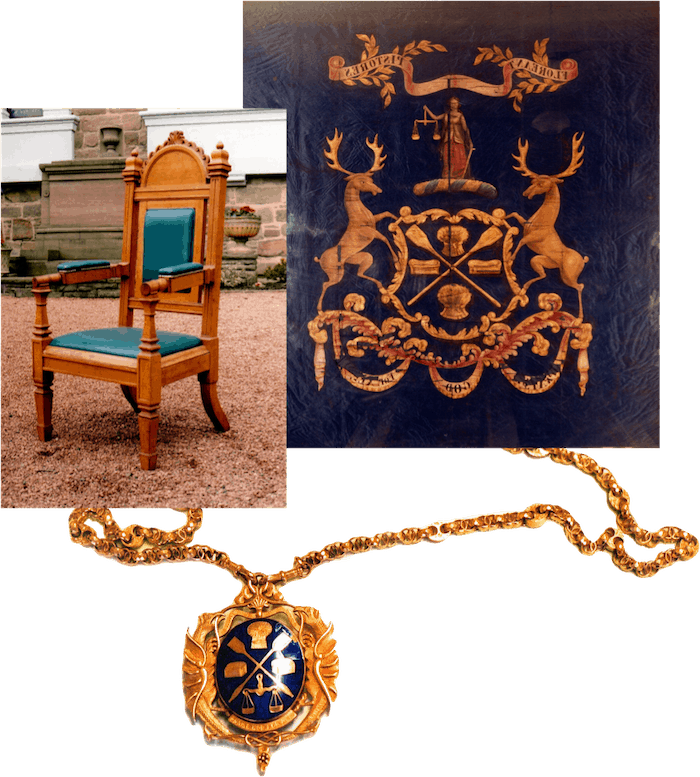The Baker, or Baxter, Trade as it was originally known, has always been first in the order of precedence of the Crafts. There is no record of why this is so, but surely producing ‘the staff of life’ their place would be virtually automatic.
Bearing in mind that all the Masters were working bakers it was probably also the largest of the Crafts. However, it is also well worth noting that the crest of the Dundee Baker’s is almost identical to that of the Worshipful Company of Bakers of London.
Membership in the past was mainly restricted to people having some connection with the Trade, either directly or through marriage or ancestors, although exceptions were made from time to time. However, this is no longer the case and new members from all backgrounds and interests are made very welcome.
It is a lively and hard-working group of people, still devoted to the original aims of the Craft. It cares for its sick and poor, is deeply interested in the advancement of the Training of apprentices and gives grants and financial assistance to this end.
